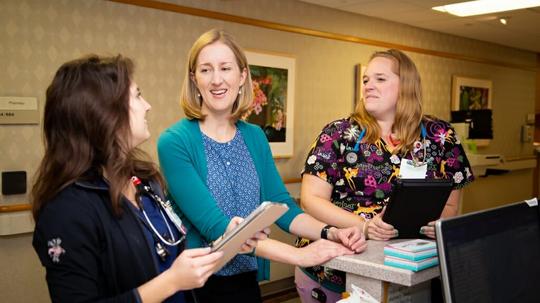
In a new study at the University of Wisconsin-Madison, researchers are using activity trackers to discover which factors contribute to fatigue in nurses and how they can be minimized to foster better patient care.
The study, led by Linsey Steege, a human factors engineer and a UW-Madison professor, requires nurses to wear the popular tech accessory, Fitbit, to track their steps, heart rate and sleep information. The data is then used to determine how work demands influence their fatigue levels.
“I became interested in focusing on how to improve how we support nurses so that they in turn can be safe and provide the highest quality patient care,” Steege said in a statement. “[But] when I looked around, there was a lot of research on physical fatigue [and] sleep deprivation for medical residents, but much less on how nursing work is contributing to fatigue and how fatigue is contributing to stress, burnout, and worst of all, medical error.”
Steege's study also collects data on nurses' work environments, such as noise levels, the volume of pages and calls they're receiving, and the time they spend looking at electronic health records. She is also analyzing shift staffing reports, nurse movement patterns and patient acuity data.
“That is what human factors engineering is—designing or modifying work environments to optimize performance while keeping people safe,” Steege said. “The hospital is a work environment. We tend to focus on patient safety, but we need to consider nurse safety and wellbeing as well. If health systems do not account for the burden of fatigue on their nurses, medical errors and turnover will both increase, along with cost.”
By collecting both data on nurses and their work environments, Steege said she hopes to determine which factors are the biggest contributors to fatigue and find strategies to curb them. Oftentimes, workplace fatigue is a reason many nurses end up leaving the profession, Steege said.
“We cannot push the problem onto nurses by solely emphasizing self-care as a solution to fatigue,” Steege said. “It has taken us a while to get here, but health systems are realizing that work environments and policies that do not promote or that actually undermine health in providers are problems for the health system to resolve.”








